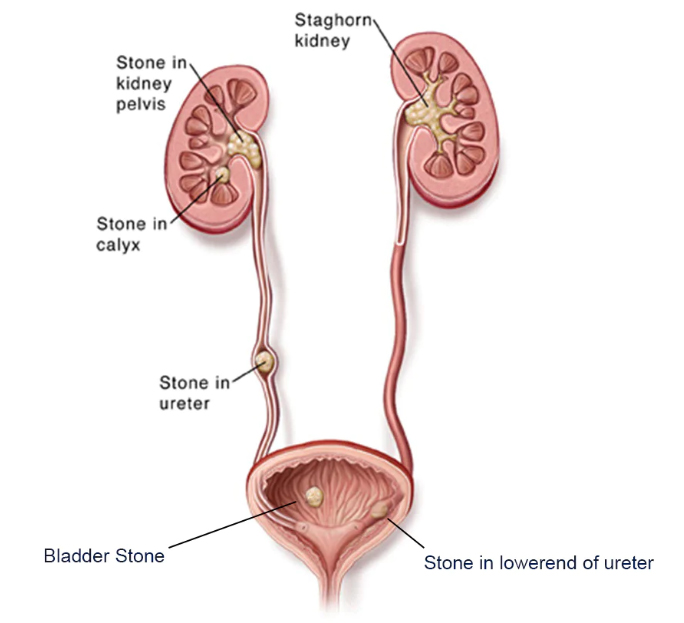Why Jeevandeep Ayurveda for “Urinary Stone”?
- Medicated oil just for treating Urinary Stone.
- Advised herbs and medicine for breaking a stone.
- Customizable food diets as a preventive measure and water intake.
Know about “Urinary Stone”
 When minerals in urine (pee) accumulate and gather together in the bladder, urinary stones develop. Urinary calculi is the medical word for bladder stones.
When minerals in urine (pee) accumulate and gather together in the bladder, urinary stones develop. Urinary calculi is the medical word for bladder stones.
Urinary stones form when some urine remains in the bladder after you pee. Stones, if left untreated, can cause infections, bleeding, and long-term urinary tract difficulties.
It may sound strange, but you may have stones in your bladder. They're hard tiny lumps composed of minerals derived from your pee.
They are more frequent in males aged 50 and over.
They may not produce any symptoms and just pass through your body on their own. You might not even realise you have one. However, they frequently cause discomfort or other issues when you pee.
Why Choose Jeevandeep Ayurveda
31
YEARS OF EXPERIENCE
180
HERBAL PRODUCTS
27000
PATIENT TREATED
- Enlargement of the Prostate Gland. In males, bladder stones can be caused by an enlarged prostate (benign prostatic hyperplasia, or BPH). An enlarged prostate can block urine flow, preventing the bladder from entirely emptying.
- Nerve Damage. Normally, nerves send information from your brain to your bladder muscles, instructing them to tighten or relax. If these nerves are injured as a result of a stroke, spinal cord injury, or other medical condition, your bladder may not empty entirely. This is referred to as neurogenic bladder.
Other Potential Causes of Bladder Stones are:
- Inflammation. Bladder inflammation, which can be induced by urinary tract infections or pelvic radiation treatment, can result in bladder stones.
- Medical Instruments. Bladder catheters, which are thin tubes put into the urethra to assist urine drain from the bladder, have been linked to bladder stones. Objects that mistakenly move to your bladder, such as a contraceptive device or a urinary stent, can also cause problems. Mineral crystals that eventually become stones grow on the surfaces of these devices.
- Stones in the Kidney. Stones that form in your kidneys are not the same as stones that form in your bladder. They evolve in various ways. Small kidney stones, on the other hand, can move down the ureters into your bladder and, if not ejected, develop into bladder stones.
- Lower abdominal discomfort.
- Urinary discomfort.
- Urine frequency.
- Urinary incontinence or difficulty urinating.
- Urine with blood.
- Urine that is cloudy or especially dark in color.
Why one should not delay treatment of “Urinary Stone”?
Bladder Stones that Do not Pass, Even if they do not Produce Symptoms, Might Develop Issues Such as:
- Chronic Bladder Issues untreated bladder stones can result in long-term urinary issues such as discomfort or frequent urination. Bladder stones can also become lodged in the aperture where pee departs the bladder and enters the urethra, obstructing urine flow.
- Infections of the Urinary Tract. Bladder stones can cause recurrent bacterial infections in your urinary tract.



